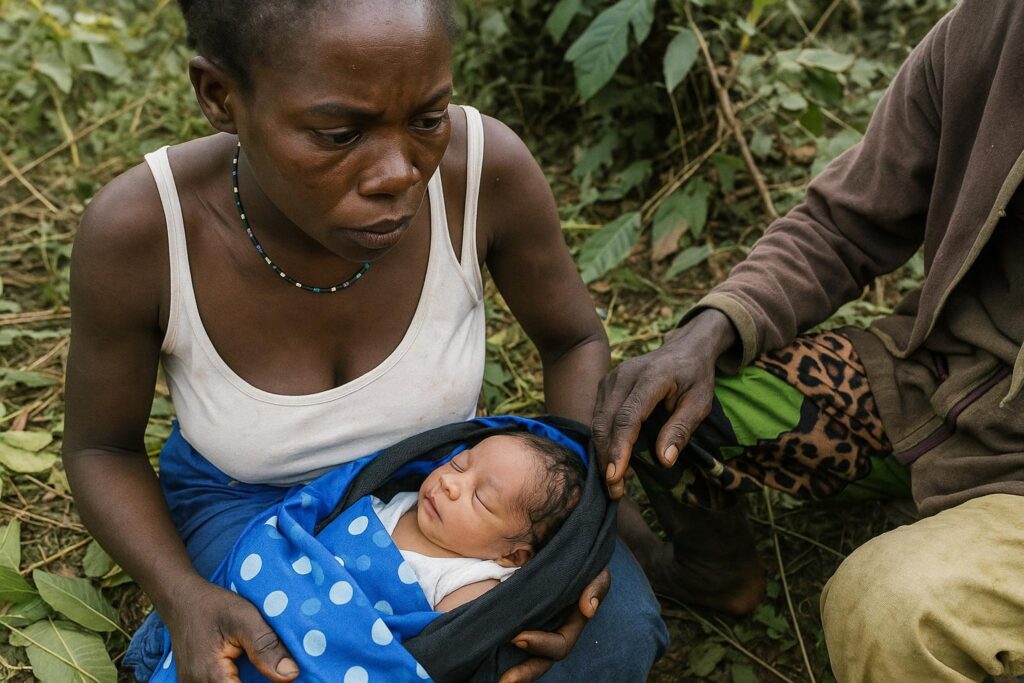Fleeing Gunfire into Forests
Gunfire echoed across Nagero County last week, sending entire villages racing into dense forest. Community leaders estimate hundreds of households now shelter beneath trees, cut off from markets, clinics and clean water, and living on wild leaves.
Mothers Deliver Without Midwives
Several pregnant women went into labour along muddy footpaths, far from trained midwives. One displaced resident said mothers ‘are giving birth in the rain with nothing but plastic sheets’, adding that newborns face cold nights and mosquito swarms.
Local volunteers fashioned crude cradles from branches, yet complications such as bleeding or infection remain largely unmanaged, community sources warned.
Health Risks Mount in Makeshift Camps
Children are coughing and the elderly complain of fevers, but lifesaving drugs are absent. Without safe latrines, open defecation threatens to spark water-borne outbreaks as the rainy season intensifies across Western Equatoria.
Government and Partners Mobilise Response
Thomas Aringa, deputy head of the state Relief and Rehabilitation Commission, confirmed the displacement yet said numbers ‘cannot be verified while people hide in the bush’. A joint committee with aid agencies will start registration once security stabilises.
Civil society voice Edmond Yakani urged authorities to treat Nagero and neighbouring Kediba with the same urgency shown to recent flood victims in Pibor, warning that hunger and disease could spiral if trucks of food and medicine delay.
Call for Swift Humanitarian Corridor
Community elders say a ceasefire corridor, even temporary, would allow vaccination teams and nutrition supplies to reach pregnant women and children. For now, the forest remains both refuge and risk, with survival balanced on wild tubers and borrowed hope.


